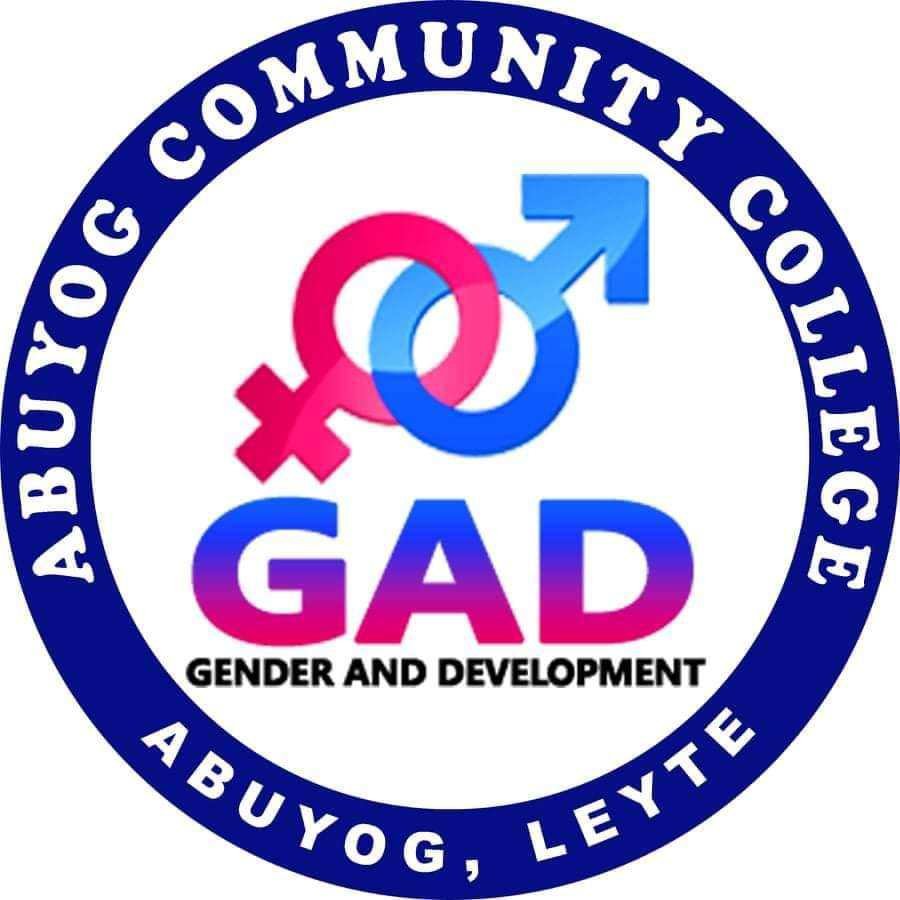
GENDER AND DEVELOPMENT (GAD) OFFICE
About GAD
Vision
Fostering a society where equality, empowerment, and inclusivity are deeply ingrained in all facets of life. Through proactive actions, policies, and programs, it envisions a future where gender disparities are eradicated, and all individuals can thrive in a harmonious and equitable society.
Mission
To drive positive change by championing gender equality, equity, and social justice. Through advocacy, education, and strategic collaborations, it aims to foster an inclusive environment that celebrates diversity and ensures equal access to opportunities. By working closely with communities, policy-makers, and stakeholders, it can affect policy reforms, promote gender-responsive development, and create transformative spaces where voices are amplified and diverse perspectives are valued, thus gender is no longer a hindrance but a catalyst for collective growth and prosperity.
What is Gender and Development?
Philippine Commission on Women defined Gender and Development as the development perspective and process that is participatory and empowering, equitable, sustainable, free from violence, respectful of human rights, supportive of self-determination and actualization of human potentials.
How Gender and Development started?
Gender and Development was developed in the 1980’s as an alternative to the Women in Development (WID) approach.
Unlike WID, the GAD approach is not concerned specifically with women, but with the way in which a society assigns roles, responsibilities, and expectations to both men and women.
GAD applies gender analysis to uncover the ways in which men and women work together, presenting results in neutral terms of economics and competence.
GAD focus primarily on two major frameworks, Gender Roles and Social Relations Analysis. Gender role focus on social construction of identities within the household, it also reveals the expectations from ‘maleness and femaleness’ in their relative access to resources. Social relations analysis exposes the social dimensions of hierarchical power relations imbedded in social institutions; also it’s determining influence on ‘the relative position of men and women in society. In an attempt to create gender equality, (denoting women having same opportunities as men, including ability to participate in the public sphere) GAD policies aim to redefine traditional gender role expectations.
Gender and Development in the Philippines
Philippine Plan for Gender and Development, 1995-2025, is a National Plan that addresses, provides and pursues full equality and development for men and women. Approved and adopted by former President Fidel V. Ramos as Executive No. 273, on September 8, 1995, it is the successor of the Philippine Development Plan for Women, 1989-1992 adopted by Executive No. 348 of February 17, 1989.
Republic Act No. 9710, otherwise known as the Magna Carta of Women was approved on August 14, 2009 which mandates non-discriminatory and pro-gender equality and equity measures to enable women’s participation in the formulation, implementation and evaluation of policies and plan for national, regional and local development.
A Memorandum Circular No. 2011 – 01 dated October 21, 2011 was released addressing to all Government Departments including their attached agencies, offices, bureaus, State Universalities and Colleges (SUCs), Government-Owned and Controlled Corporations (GOCCs) and all other government instrumentalities as their guidelines and procedures for the establishment, strengthening and institutionalization of the GAD Focal Point System (GFPS).
What are the programs and services offered by the Gender and Development office of Abuyog Community College?
There are various programs and services offered by the Gender and Development Unit of Abuyog Community College to both students and faculty & staff:
- Awareness and Training Programs: We organize seminars, webinars, workshops, and training sessions to raise awareness about gender issues, stereotypes, and discrimination. These programs equip students and faculty & staff with the necessary knowledge and skills to combat gender-based challenges. Examples to these are the conduct of seminars on Anti-sexual Harassment and Safe Spaces Acts, Anti-Violence against Women and their children Act, Anti-Bullying Act, Mental Health, Magna Carta of Women, Sexual Orientation and Gender Identity and Expression, and Gender Sensitivity.
- Advocacy and Policy development: The GAD Office actively engages in advocating for gender-responsive policies and practices within the college. Coordinate institutional GAD projects and programs that promote Gender Mainstreaming and recommend appropriate measures to align institutional policies in accordance with its mandate. Example to this is to have a gender-responsive syllabus, and the inclusion of subject on Gender and Society in our new curriculum. We have a plan to provide a separate gender-neutral comfort rooms or special comfort room for LGBTQ members.
- Resource Center: We will maintain a resource center that houses books, articles, and other reference materials related to gender studies, feminism, and women’s rights. Right now, we have reading materials available at our library, and this is accessible to students and faculty and staff who wish to deepen their understanding and knowledge in these areas.
- Gender-Based Research and Publications: Our office supports research initiatives that explore gender issues, both within and outside the college. We encourage students and faculty and staff to contribute to academic journals and publications, thereby contributing to the existing body of knowledge in gender and development studies.
- Counselling and Support: We provide confidential counselling services to students who have experienced gender-based violence, discrimination, or harassment. In fact, we established the Committee On Decorum and Investigation where it investigates sexual harassment cases in accordance with its prescribed procedure.
- Extension and Outreach: Recently, we started outreach programs to selected barangays in our town and selected elementary and secondary schools by conducting seminars on Anti-sexual Harassment and Safe Spaces Acts, Anti-Violence against Women and their children Act, and Anti-Bullying Act.




